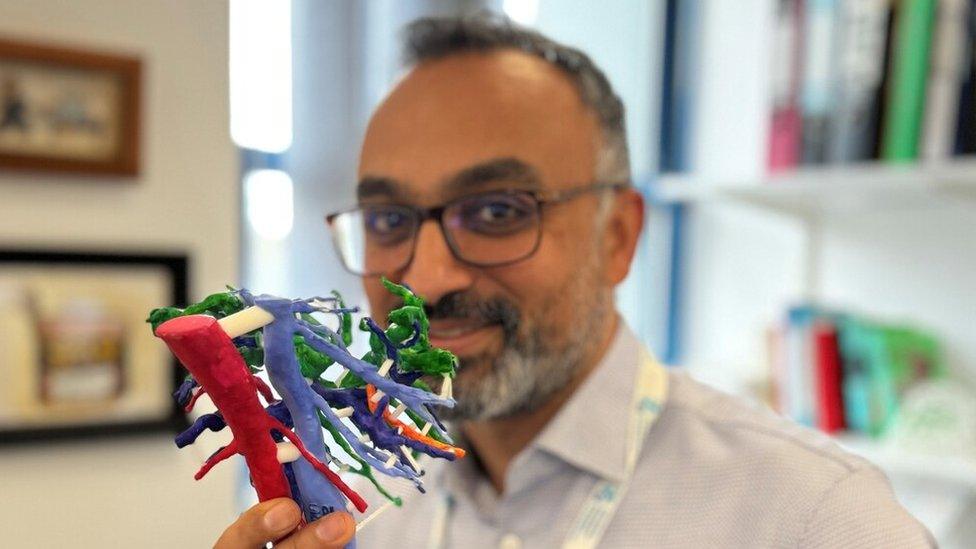Isle of Wight: Asthma study follow-up hopes to unlock treatments
- Published
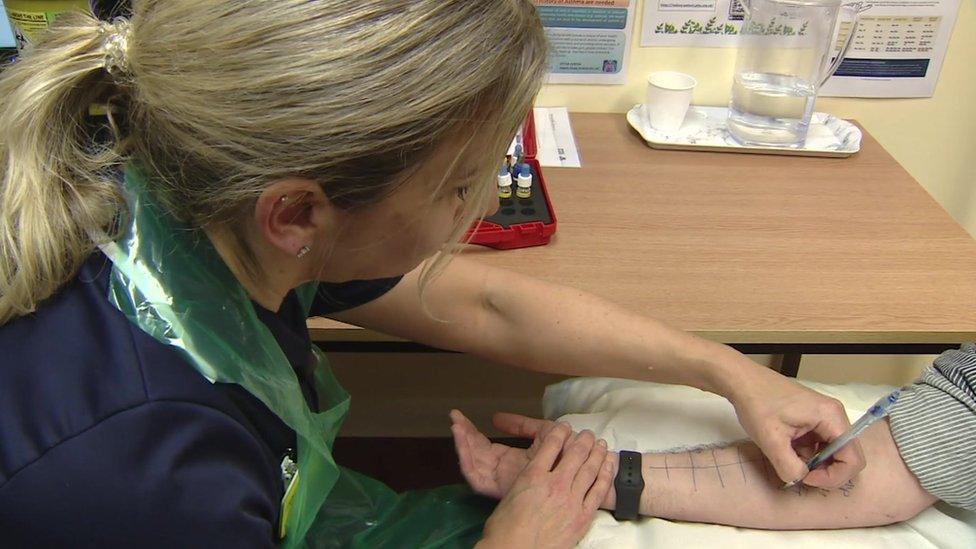
The study has been going for more than 30 years
Researchers who have been tracking the health of hundreds of people on an island have said there is new hope for treating asthma and allergies.
More than 1,500 children born on the Isle of Wight between 1989 and early 1990 were involved in the research.
The group has had medical tests carried out on them since they were babies.
More than 30 years later, there is hope that a new follow-up study using "cutting edge" techniques will unlock new treatments.
The research project is a collaboration between the University of Southampton and the David Hide Asthma and Allergy Research Centre at St Mary's Hospital on the Isle of Wight.
Prof Hasan Arshad from the University of Southampton said the group provided a "unique wealth of information".
The allergy and clinical immunology expert said: "You will hardly find any academic physician in the asthma and allergy world who does not know about the Isle of Wight cohort, it has contributed such knowledge."
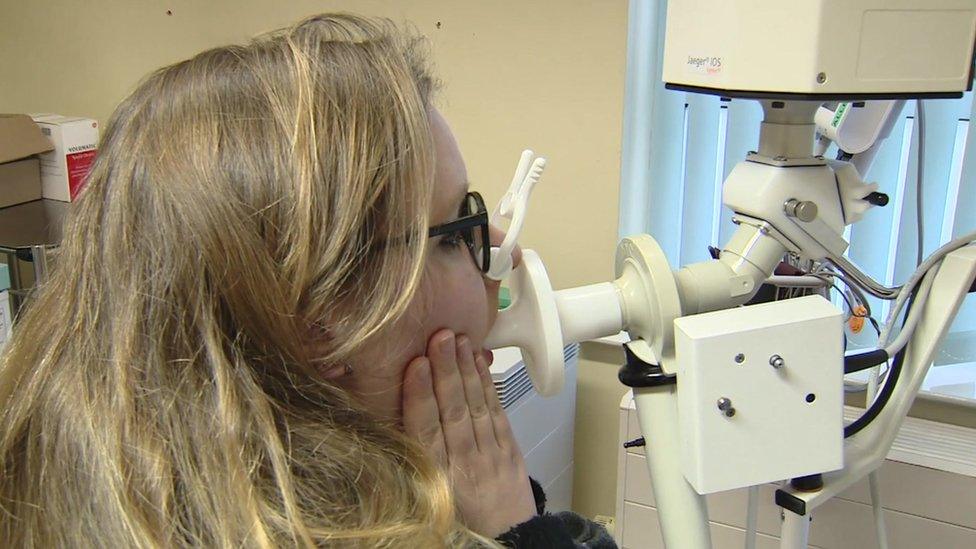
Kayleigh Kay's asthma was found through the research
Kayleigh Kay has been involved since birth, after her mother was asked to join the study.
Her asthma and allergies were first identified through the study and now her own child is also taking part.
She said while it might not "necessarily cure" allergies and asthma, it could provide people with support or aid.
"It's helped me so I'd like to think it might help somebody else," she said.
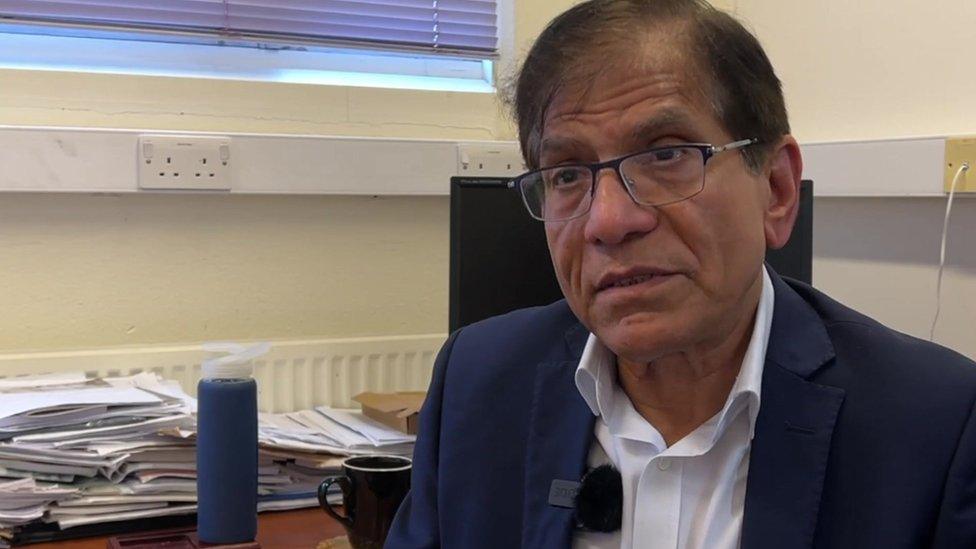
Prof Hasan Arshad is one of the study's researchers
Prof Arshad said the research revealed "the environment that we live in, the allergens and other other pollutants that we inhale, make a huge difference to our risk of asthma and allergy".
He said that over the course of 34 years, researchers saw many children "growing out" of asthma.
"It is not a disease, often, that once it develops it is for life," he said.
"We see 50% of children improving during their adolescence and we've also found that smoking, paracetamol use and some other pollutant factors were important for persistence of asthma.
"So, if we theoretically take those factors away, there is a good chance many of these children will actually grow out of asthma."
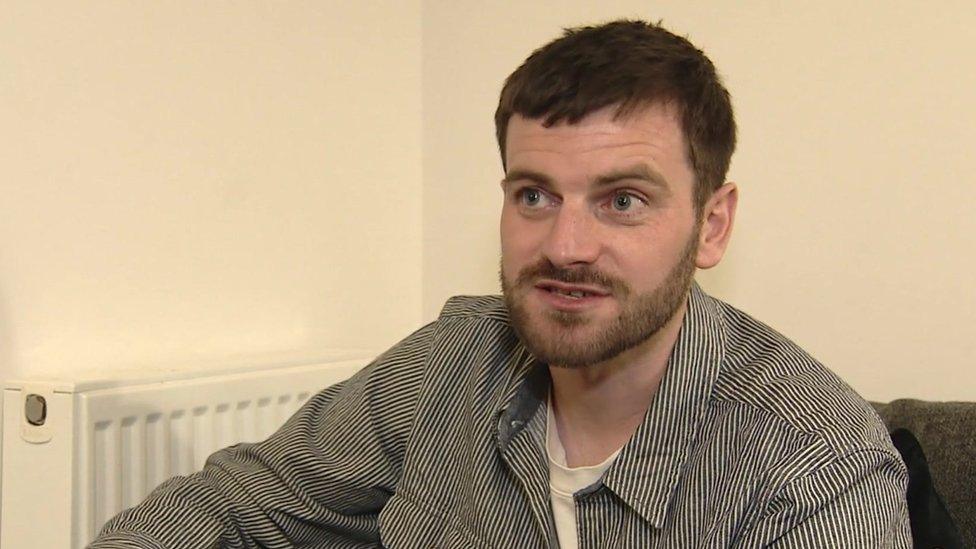
Dan Storey's mother signed him up to take part in the research before he was even born
Participant Dan Storey said: "Anything you can do to gain more insight into [allergies and asthma] is a real benefit, not just for the local community but worldwide.
"My daughter suffers from asthma so anything we can do as a family to get more understanding is a real benefit."
Researchers said they plan to combine the information gathered over the last 34 years with "cutting-edge AI breath analysis" and molecular level analysis to develop new ways of diagnosing and treating asthma.
"Our breath contains all kinds of chemicals that relate to our metabolism," said Prof Arshad.
"For the first time, we'll be using a special device which uses artificial intelligence to analyse these molecules.
"Pairing this analysis with our long-term cohort data will deliver new insights, opening the door to exciting diagnostic capabilities in future."
The team also plans to work with the University of San Diego to understand the differences "at a molecular level" between people who have asthma, those who previously had asthma that is now in remission, and those who have never had asthma or allergies.
"Those who take part in the follow-up could play a key role in developing new treatments for future generations," Prof Arshad added.

Follow BBC South on Facebook, external, X, external, or Instagram, external. Send your story ideas to south.newsonline@bbc.co.uk or via WhatsApp on 0808 100 2240.
Related topics
- Published28 February 2024
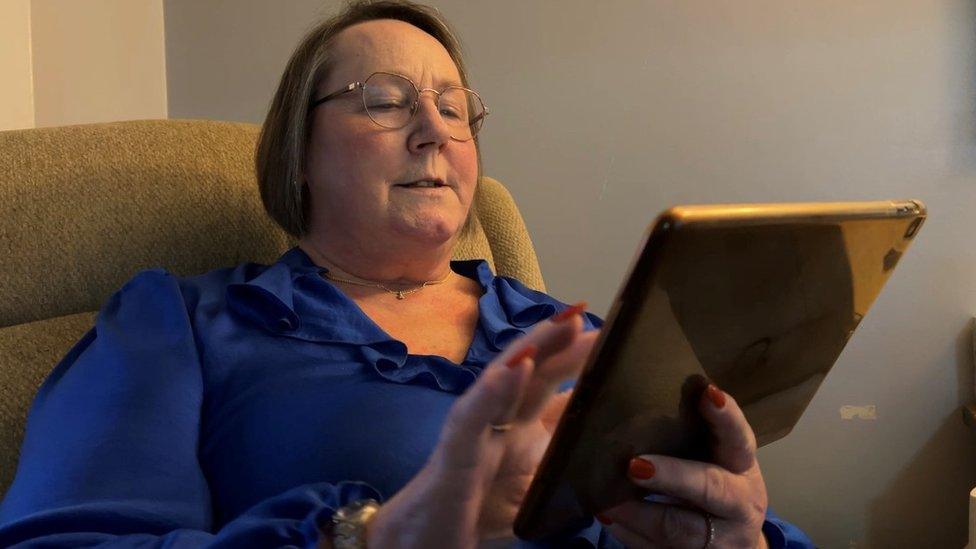
- Published8 February 2024
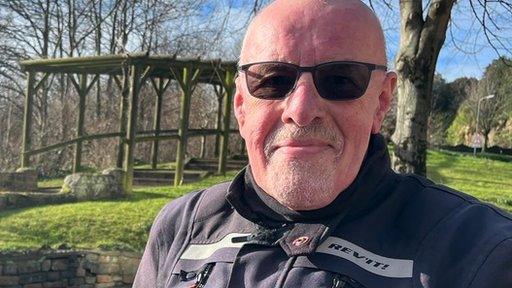
- Published27 January 2024
